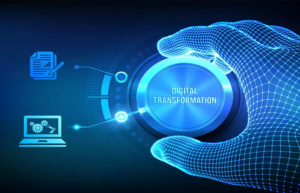The digital transformation is underway and HR is not spared. Collaboration, training and remote recruitment have become the new daily life of employers and employees. Digital has slipped into the heart of all the challenges of the world of work. But then, what future for HR in 2021 and beyond? Caroline Loisel, Expert, speaker and HR trainer as well as representatives of monday.com, OpenClassrooms and Golden Bees give us their visions on the subject.
carolineloisel Caroline Loisel, Expert, speaker and HR trainer: The arrival of new technologies combined with the health crisis has pushed HR to continue developing certain aspects of their profession. In the guide to the future of HR and Management , which I co-wrote with Emmanuel Vivier, co-founder of the HUB Institute,
The new challenges of the Business Accelerator aspectrevolve around our relationship to work and its place in our lives. The crisis has generated in us an almost unprecedented feeling of questioning that has turned many lives upside down. Taking this into account goes hand in hand with the new vision that a company has of its employees. Indeed, the collaborator is no longer considered only as such, but as a citizen of the world, with his own perception and sensitivity. We have reached the end of a model in which the company had an exclusively economic role. Recently, it began to play a societal and ethical role with a specific question: how does the company advance the community. HR therefore become actors in the culture of the company, its values and its mission.
In terms of the Entrepreneur , more enterprising HR is HR who knows how to be proactive. Creativity must be at the heart of HR decisions from now on. In particular on the terms of teleworking by offering flat-rate systems, agreements and flexibility in an effort to adapt to the employee.
Being a Socio-coach for HR in 2021 means leaving more room for emotional intelligence in a context where relationships with others tend to become closer. The key issue could be translated into this question: how to give more space to emotional intelligence, especially in a fragile economic context?
This year marks the need for the HR function to be Techno-agile . Faced with multiple fragmented employee experiences, technological tools have become the new right arms of HR. The challenge is to equip yourself with tools capable of taking into account new variables and knowing how to personalize, collect data to optimize training management, support for mobility and the management of telework, between others.
Training : how does the company, through training, help employees grow?
Recruitment: Remote recruitment has forced interviews to be more authentic, on both sides. But without the non-verbal and the feeling of the interview, are the candidates advantaged or disadvantaged?
Collaboration : in a return to the office, partial or total, how will these tools be reintegrated?
OpenClassrooms: enabling employees to reinvent themselves through training
andreabertoneAndrea Bertone, Chief Revenue Officer (OpenClassrooms): If many players have been able to digitize, many have transposed what they already knew how to do on digital. It’s a good start. The next step lies in the ability of companies to build a digital-first offer . A chance since the health crisis has accelerated the 100% online training model: Pierre Dubuc, CEO and co-founder of OpenClassrooms, thus estimates at 5 years the time we have saved in the transformation of our uses . Cultural locks have been lifted: everyone has understood that it is possible to train remotely and that this learning is even more effective, since it makes it possible to extend the experience over time.
Companies are in need of digital talent long before the start of the health crisis, due to the digital transformation facing all industries. At OpenClassrooms we have seen this acceleration of the online training sector with an increasing demand from companies for 1 year. For our company, this translates into annual growth of +150% and a three -fold increase in our client companies . In addition, the public authorities have massively invested in vocational training to help those who lost their jobs during the crisis or wish to retrain to return to working life.
According to the World Economic Forum , one billion people will need to be trained in digital skills by 2030 , or one third of the global workforce. All employees will have to be retrained in the professions of the future and the shift they will take in the coming years .
In general, most companies have understood the issues related to the development of the skills of their employees and
What if this period, as confusing as it is, turns out to be an opportunity for the work of tomorrow? The opportunity to move towards a more flexible, more autonomous professional future, more in tune with the expectations of employees and the realities of companies? A structural change was in the making, it is now a reality.
This is how the contours of the future of work are slowly taking shape. In the long term, it will be a question, for companies, of being open and agile enough to move to the next level and of supporting employees as well as possible to take them with them.
The response to this imperative requires new approaches: among them, the diversification of sourcing channels to better reach candidates is identified as a priority project by 59% of HR professionals 1 . We also notea strengthening of employer brand issues, in response to the tensions observed in certain professions.




